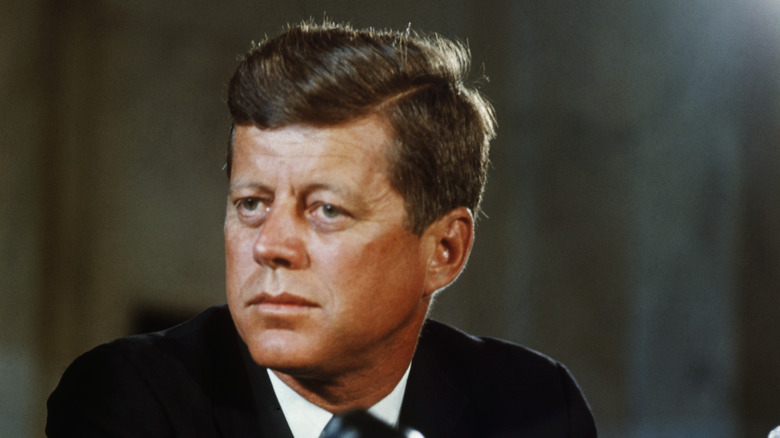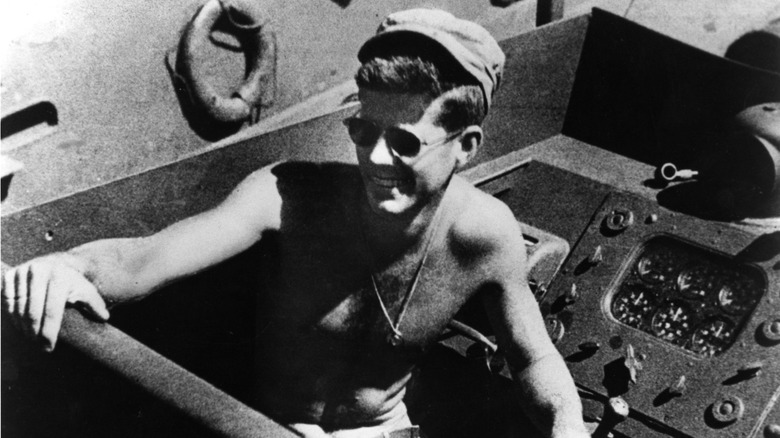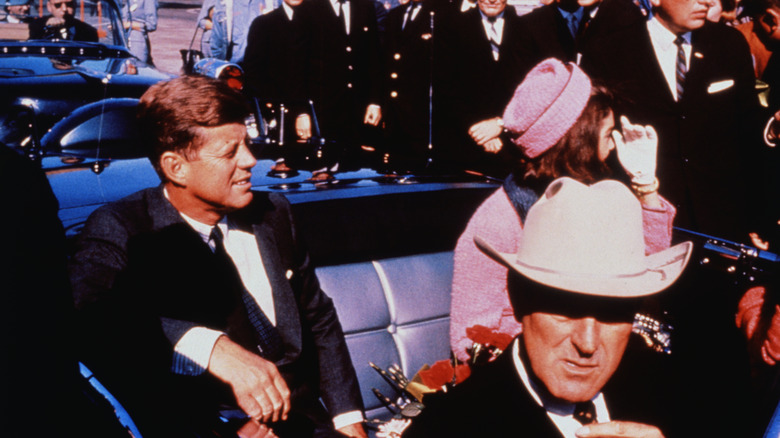Inside JFK's Health Struggles Over The Years
Democratic President John F. Kennedy, aka JFK, has gone down in history as an American hero since his tragic and shocking assassination just three years after he won the 1960 presidential election. His is a lasting legacy, with his administration making steps to put an end to racial segregation and kick-start the space race. But his heroics started long before he entered the world of politics.
As a young man, Kennedy became a successful author through the 1940 release of "Why England Slept" — a work based on his senior college thesis about the outbreak of World War II, "Why England Slept." His stock rose in the years that followed thanks to his actions during the war, in which he was instrumental in saving the lives of 10 of his navy crew after a shipwreck. By the time he ran for office, he had already proved himself to be a young man of prodigious ability — but his childhood had been a different story. Per PBS, the young Kennedy suffered from severe illnesses throughout his early years and adolescence, including scarlet fever, which nearly killed him, as well as complex autoimmune disorders. He also developed several other afflictions throughout his life, such as irritable bowel syndrome, although he kept his health issues a secret from the voting public.
Injuries gained through heroics
John F. Kennedy was also plagued throughout his career by chronic back pain, an affliction that began to affect him in early life. Kennedy was an above-average athlete in high school, renowned for his football prowess, and it was reportedly around this time that his back problems began to emerge — perhaps exacerbated by what a review in the Postgraduate Medical Journal explains as "autoimmune polyglandular syndrome type 2 with Addison's disease and hypothyroidism." Addison's disease in particular is known to cause muscle weakness.
So it is doubly impressive that during World War II Kennedy was able to swim to safety from his Navy boat after it was split in two by a Japanese attack. Not only that, but Kennedy also managed to make it to land while dragging an injured crew member with him using a strap bitten between his teeth. But while he returned home a war hero — which undoubtedly was of great benefit to his political aspirations — the strain his body had experienced became a major setback going forward.
Chronic pain and weakness through medication
According to PBS, John F. Kennedy had his first back surgery in 1944, with doctors intervening in his spine by fusing bones and installing metal plates to support his vertebrae. However, possibly due to Kennedy's autoimmune condition, the surgeries failed to heal, with complications reportedly becoming life-threatening at multiple points. His back remained a struggle throughout his life, and he had three more surgeries in the 1950s to help alleviate his pain and increase mobility.
As a result, Kennedy was on a cocktail of medications and painkillers, which helped him project a healthy and vigorous image that was a far cry from his medical reality. He also took steroids, and PBS says this likely contributed to Kennedy developing osteoporosis, a disease that severely weakens bone structure. In fact, Kennedy's back health was so poor that he was forced to wear a back brace much of the time, even during public appearances. He was reportedly wearing such a device at the time of his assassination.


